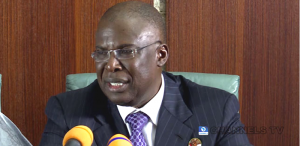One of the nation’s largest Indigenous tribes is seeking to change a 140-year-old federal law that governs criminal jurisdiction of tribal citizens on reservations based on “blood quantum.”
Why it matters: The move by the Cherokee Nation comes as the Oklahoma tribe is welcoming the descendants of formerly enslaved Black people once owned by tribal members as citizens.
The big picture: The challenge to the federal Major Crimes Act also comes as more Indigenous tribes assert themselves over issues of sovereignty, political representation and how they should define who is a tribal member.
Zoom in: Cherokee Nation principal chief Chuck Hoskin Jr. tells Axios the tribe is asking Congress to revamp the 1885 federal law that focuses on “Indian blood” — a racial category many tribes now shun.
- Federal courts have interpreted that law to require tribal citizens charged in criminal cases on tribal land to have a certain “blood quantum” to be prosecuted in federal or tribal court instead of state.
- Hoskin says the law discriminates Cherokee citizens of Freedmen descentwho may be tried in state court with other non-tribal members, and it needs to be updated for a new reality.
- “It’s about the United States respecting tribal sovereignty and, frankly, catching up with the Cherokee Nation in terms of equality for all of our citizens, including Cherokee citizens of Freedmen descent.”
Background: The Supreme Court ruled in 2020 that a larger portion of eastern Oklahoma falls within an Indigenous reservation, preventing state authorities from prosecuting offenses committed by Native Americans on tribal land.
- But some Black tribal members are still being prosecuted because they lack “Indian blood,” according to The New York Times.
- The Times highlighted a case involving Michael J. Hill, a Black citizen of the Cherokee Nation, who got into an altercation with police on tribal land.
- He sought to have a case dismissed, arguing that as a tribal member in tribal territory, state officials were outside the state’s criminal jurisdiction, but courts ruled he didn’t have enough “Indian blood” to make the claims.
State of play: The Cherokee Nation Supreme Court ruled in 2021 that Freedmen have the right to tribal citizenship, and the tribe soon approved changes to its Constitution to include Freemen.
- The Cherokee Nation has around 15,000 enrolled citizens of Freedmen descent.
Yes, but: Other tribes who once owned Black enslaved people are resisting to include Freedmen as tribal members.
- Black descendants of enslaved people once owned by members of the Muscogee (Creek) Nation are seeking full tribal membership in a case that’s now backlogged in the tribe’s court system.
Between the lines: The conflict is between the U.S. government struggling to differentiate between race and agreements with sovereign nations, Tulsa attorney Brett Chapman, an enrolled member of the Pawnee tribe, tells Axios.
- “At the end of the day, it is a question of sovereignty. In this instance, we have one nation here that’s trying to do it for the right reasons.”
- Chapman said the Cherokee Nation is also trying to confront anti-Black racism in Indigenous communities and should be commended for it.
What’s next: Hoskin said the Cherokee Nation and other tribes will step up their lobbying efforts in Congress to make the changes to the federal law.
- He said the tribe is also considering legal challenges through the federal court system.




